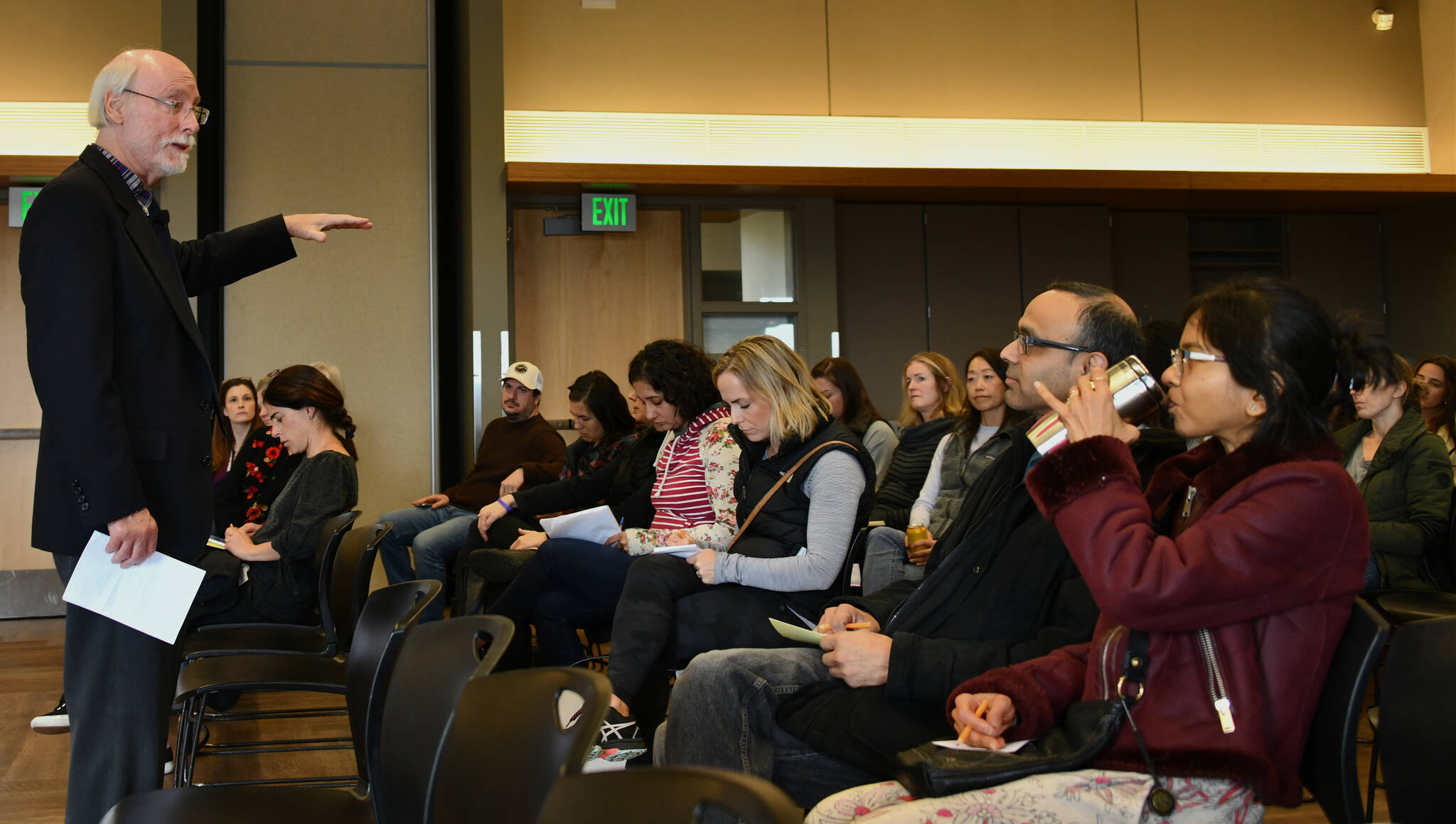If kids are thrown a curveball in life, parents are essential supporters in lifting their children up and moving them forward together, according to Ned Johnson, founder of the PrepMatters tutoring service.
Johnson, one of the two speakers at a MI Parent Edge/Mercer Island Youth and Family Services Healthy Youth Initiative presentation on March 8, added that a close connection between kids and parents is the single best protective factor against stress as children traverse their busy academic and social lives.
William Stixrud, PhD, was also part of the research-based discussion focused on “Raising a Self-Driven Child” for preschool and elementary school parents at the Mercer Island Community and Event Center in the morning and later that night for middle school and high school parents at Mercer Island High School. In all, 72 parents attended the morning presentation and 60 gathered for the evening event.
The clinical neuropsychologist co-penned a pair of books with Johnson (“The Self-Driven Child” and “What Do You Say?”) that delve into communicating effectively with children, protecting children from the harmful effects of academic stress and pressure and helping anxious and exhausted children.
Stixrud said that kids feel anxiety and pressure in their adolescence while already thinking about college. One of the myriad topics the duo touched upon was children developing a healthy brain, sculpting it and carrying it through to adulthood.
“We want our kids to be as successful as they want to be, but we want them to have brains that are capable of enjoying their success,” said Stixrud, adding that a recent study found that exercise was one of the main drivers toward greater mental health and correlates with self-drive and motivation.
Along with parents offering their children help, wisdom and advice to tackle the items on their agendas each day, the speaking duo said that kids should be intrinsically making their own decisions.
“By the time they’re teenagers, I feel the best medicine we can give them besides ‘I love you’ is that ‘I have confidence in your ability to make decisions about your own life and can learn from your mistakes,’” Stixrud said.
When the switch-off speaking style swung back to Johnson, he discussed healthy expectations versus toxic expectations, which was a topic they devoted an entire chapter to in one of their books.
In the healthy realm, parents tell their children they believe they can shine, whereas on the toxic side, parents expect their kids to do well. Toxic expectations are unhealthy because they suggest that love or approval is conditional, Johnson said.
“The most important emotional anchor in their lives is the people in this room. We want it to feel safe and not have their love that they want to have to feel conditional,” said Johnson, adding that with the intensity of the outside world swirling around them, children in particular need home to be a safe space.
Kids should feel deep and unconditional love no matter how hard they work, what they’ve accomplished and how they behave, Stixrud said.
Lesley Malakoti, an Island parent of a fourth-grader and preschooler, noted after the presentation: “I think there were a lot of good actionable items about learning how to position yourself as a consultant to your kid instead of a manager. That resonated with me the most.”
Karen Chan, a local resident with children in kindergarten, discussed one of her main takeaways from the event: “I think a lot of the things they talked about with the focus on the relationship and trying to find opportunities for you to help them develop — you give them more control over things.”
Malakoti and Chan said there’s a lot of pressure for high achievement on the Island, and Chan added, “We want to be able to support our children in healthy ways, so I think the whole healthy brain concept is really good to think about.”


